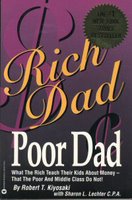Which kind of Investor are YOU?

It's Chinese New year. Most of us will be discussing where should we invest our money to gain maximum return with minimum risk. Since I have chosen financial world as my personal career, and I have to set up some plan down to road to enrich more people investment portfolio and perhaps some percentage gain from their portfolio gain.
It was not surprise people around me are impressed with the 20% annual return on KLSE stock investment performance. I'm not saying that by throwing a dart and you will get 20% annual return, it will require research and study to pick them out. For some, investing KLSE stock is simply too risky.
I remember how Robert Kiyosaki described RISK! He always say, investing is just like driving a car, when you have learnt how to drive, and driving for a long time, it just become your second nature. However, if you never learn how to drive and start driving around, you'll just keep hitting the walls or bumps. However, for investment, most people just never learn how to invest.
RISK + CONTROL = Reward !!!
Below I would like to share an article by Robert Kiyosaki in his column, "Why the Rich get richer"
Business knowledge varies among these three kinds of people:
- Non-Investors: They expect that someone (such as their parents, their kids, a spouse, a company, or the government) will take care of them when their working days are over.
- Passive Investors: They turn their money over to someone or some organization, such as a mutual fund, to manage. It's the passive investor who tends to believe the financial planners' mantra of "work hard, save money, get out of debt, invest for the long term, and diversify."
- Active Investors: These people tend to manage their own portfolios and assets, as well as hand-picking their advisors, who are not brokers or sales people. To be a successful active investor requires a higher financial IQ, more real world entrepreneurial business experience, and a very smart advisory team.
For non-investors and passive investors, investing is risky. The main reason is because these two groups of people have no control over the investments they're involved in. While active investors know there's risk, they also realize that the greater the control they have, the less the risk.
Getting a Grip on Business
What do I mean by control? Let me illustrate using the example of driving a car. To be a safe driver, there are six basic controls we all must have:
- Steering wheel
- Gas pedal
- Brakes
- Gear shift
- Driver's education/license
- Insurance
- Income
- Expenses
- Asset value
- Liabilities
- Financial education/management
- Insurance
A good business person wants control over their business. For example, if sales are down and expenses are up, a good business person knows what to do to correct the situation. In my real estate investments, as soon as interest rates began to drop around 2000, our team immediately refinanced our debt (liabilities) on our properties, which reduced expenses, increased income, and boosted the intrinsic asset value of the property.
When I invest in real estate, I have lots of insurance. If a building burns or a tenant falls, I have insurance to cover those risks. A mutual fund has no insurance. That is why $7 trillion to $9 trillion were lost when the market crashed in 2000. Today, in spite of not having any insurance against losses, millions of employees happily deposit their money in their 401(k).
Know What You're Doing
The bad news for most non-investors and passive investors is they pick investments that don't welcome investor control. In fact, most non-investors and passive investors invest in the riskiest of all investments -- savings, stocks, bonds, and mutual funds -- all dangerous picks since investors lack control.
Ask yourself these questions:
- Do you have control over the dollar's fluctuation in value?
- Can you get Bill Gates to reduce Microsoft's expenses or replace its new marketing team?
- Do you have any control over interest rates?
- Do you know your mutual-fund manager personally?
While I do have some money in stocks, bonds, and mutual funds, most of my resources are in investments I control.
Even worse, most financial advisors -- be they stock brokers, financial planners, or corporate investment advisors -- don't have any control, either. In other words, asking most financial advisors for investment advice is like a asking a taxi driver who's driving a car without a steering wheel, gas pedal, brakes, or insurance to take you to the airport.
That's why investing is risky for most non-investors and passive investors. As Warren Buffett says, "Risk comes from not knowing what you're doing."









2 Comments:
can tumpang you a bit to invest in klse ah ?
By Kay, at 12:09 AM
Kay, at 12:09 AM
Sure, I welcome investment ! ;)
By mikanico, at 11:32 AM
mikanico, at 11:32 AM
Post a Comment
<< Home